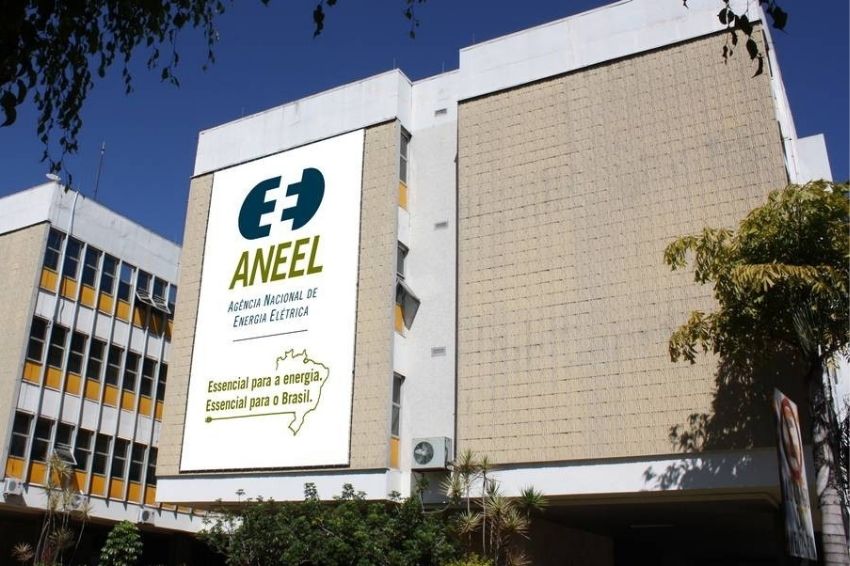The update of REN 482 (Normative Resolution No. 482/2012) of ANEEL (National Electric Energy Agency) once again became a topic of discussion in WhatsApp groups and on social networks, after the publication of articles about a supposed approval of the “taxation” of solar energy in Brazil.
The publication of these reports worries professionals in the solar sector and consumers who have invested in photovoltaic sources.
For this reason, and with the aim of clarifying several questions on the subject, the report Solar Channel contacted ANEEL to check if there is any news about updating the REN 482.
“We have not confirmed the interview. It was not scheduled or marked by the ANEEL Communications Office. The article talks about an interview, but does not cite any specific source from the Agency”, said the note, referring to a report published last Thursday (4).
The article to which the agency refers informs that the withdrawal of subsidies was confirmed and that ANEEL and the Federal Government state that they have technical reasons for charging fees on DG (distributed generation).
Check official websites
Misinformation is one of the biggest problems in global society. And, in Brazil, it is no different. For this reason, the Solar Channel guides the search for information on official websites.
News related to movements regarding the ANEEL update, for example, can be obtained and checked on the regulatory agency's official website, at www.aneel.gov.br.
Update of REN 482 remains undefined
Published in 2012, the resolution allows every Brazilian to generate their own energy through renewable sources. Furthermore, it created, among other things, the SCEE (Electric Energy Compensation System), which enables these generators to inject their surplus energy into the distribution network, as a loan, for subsequent compensation.
Currently, energy distributors claim that the current SCEE does not allow adequate remuneration for the use of the distribution network, transferring costs to other users who did not choose to install their own generation.
However, installers and consumers interested in their own generation highlight the benefits of DG that complement the energy matrix, as a clean and cheaper source than thermal sources, for example. Furthermore, they highlight other beneficial impacts on society such as environmental issues, generation of quality jobs and tax collection.
In addition to a new regulatory framework with the update of the resolution by ANEEL, there is still the possibility of creating a legal framework for DG in the country through bills being processed in the national congress.


















8 Responses
The world may fall apart if my name isn't Raimundo, I'm going to install solar panels and I'm not going to throw them on the grid, I'm going to install a current inverter relay so that when I lose sunlight, I can even tax the dog's mother.
It's funny that ANEEL says it has reasons to tax GD. When in reality the technical reasons for DG outweigh all the negative aspects of the current matrix model of the energy sector, which needs to be reformulated due to the increase in DG in Brazil.
This is the country of contrarians!! Mainly the consumer.
The impression is that when something comes to work in a clean way without harming nature, it has to be prevented, it's almost ridiculous!
Good morning, due to these discussions about solar taxation.
According to information when purchasing the system, we are informed that after five years the energy fed into the grid goes to the electricity company (here Energisa).
There is a system that produces a surplus and the energy companies use it and pass it on until it is returned, but there is always a surplus.
So they want to earn twice by taxing the sun and passing on the leftovers produced daily.
For example, I've had the system for about three months and it's always gradually running out and I'm not going to use it all and the energy company is making twice the profit because I pay the monthly fee of about 88 Reais.
It is up to electricity companies and governments to support customers to install systems producing an additional 20%, leaving it to the electrical company. This way, if it increases, it preserves nature, unless in this way they will be deprived of ulterior motives.
Thanks.
GOOD MORNING!
I have a company in the sector and I confess that I was quite worried about this news.
However, I continue to believe in the potential of the photovoltaic solar energy generation system in Brazil.
#ENERGIALCLEAN AND SUSTAINABLE
Good afternoon, I'm Carlos, yesterday I called the ANEEL ombudsman's office where I disagreed with the taxation. there is a very strong lobby from distributors;
It should be known what criteria were used for taxation
When it is generated by sunlight, this energy is prevented from depleting the lakes;
What is the value of the losses from the energy exit to the producer's house;
This is a setback in Brazil
The whole world encourages the use of renewable sources; etc.
Good investigative work!
Our sector does not need any more speculation.